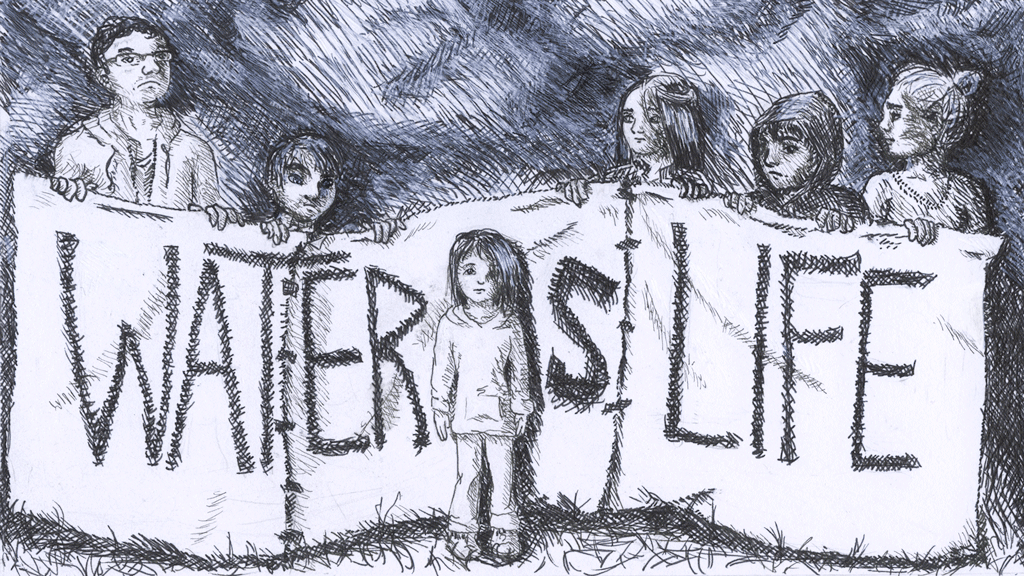In the Name of Profit: The North Dakota Access Pipeline
by Taylor Derrisaw | published Oct. 4th, 2016
There are signs everywhere. Shouting, anger and a sense of tension between the opposing sides lingers in the air. Those who work for the pipeline hold on to their dogs, who pull hard on their leashes and flash their teeth at the protesters, but the protesters refuse to back down.
This scene has occurred day after day in North Dakota as protesters clash with security personnel over the construction of the North Dakota Access Pipeline, a project which they argue would desecrate cultural sites and contribute to climate change. The pipeline would cut through the reservation’s main water source, so if a leak were to occur, it could prove disastrous for the people of the Standing Rock Sioux tribe. The owners of the pipeline argue that the construction will feature new technology to limit leaks, but the tribe isn’t buying it.
This isn’t the first time we’ve seen something like this happen. The United States has had a long history of disrespecting Native American land and flat-out ignoring treaties. This issue is only one bullet point in a long history of betrayal.
It’s easy to look at something like a pipeline and claim it represents something good, whether that’s economic growth, job opportunities or lower gas prices, and there might be some truth to that, but as with everything there’s a trade-off. We might actually be on the verge of placing economic profit ahead of our integrity and our cultural beliefs. How we treat people and what kind of priorities we set as a society determines the kind of people we are and aspire to be.
I was born and raised in Colorado, a place where it was easy to recognize and appreciate Native American culture. It was in the architecture, in the customs, in the people who lived there and in the history of the land. Although that land was no longer theirs, it still carried their heritage and their livelihood. My grandfather was born in Oklahoma and is a Creek Native American. His ancestors walked on the Trail of Tears and saw firsthand the destructive power of greed and American exceptionalism. With every inch taken, with every treaty broken, America looked forward and told the Native population, “We need the space,” or, “We need the resources.” “We need the land, and you, the Native American, have it.” It can be hard to understand Native American issues when you’re outside of that group — just as I didn’t when I was younger — and that’s why it’s easy for us, as a white-dominant nation, to discard Native issues like they don’t exist.
The protest happening in North Dakota at this moment puts us at a crossroad, and it’ll force our society to take a deep, critical look at itself. We are now talking about violating one of the last few bits of Native land left in the country. If we’re willing to put economic “progress” ahead of our integrity and respect for treaties and other human beings, then we’ve already lost our ability to call ourselves the greatest country on Earth.
We have the power to stop. We have the power to stand up with Native Americans across the country, claim responsibility for the sins of the past and work towards building a more cooperative society. However, until we decide our integrity is more important than money, we will still be in a cyclical state of disrespect and indifference, and these protests will become more common and far more heated.



